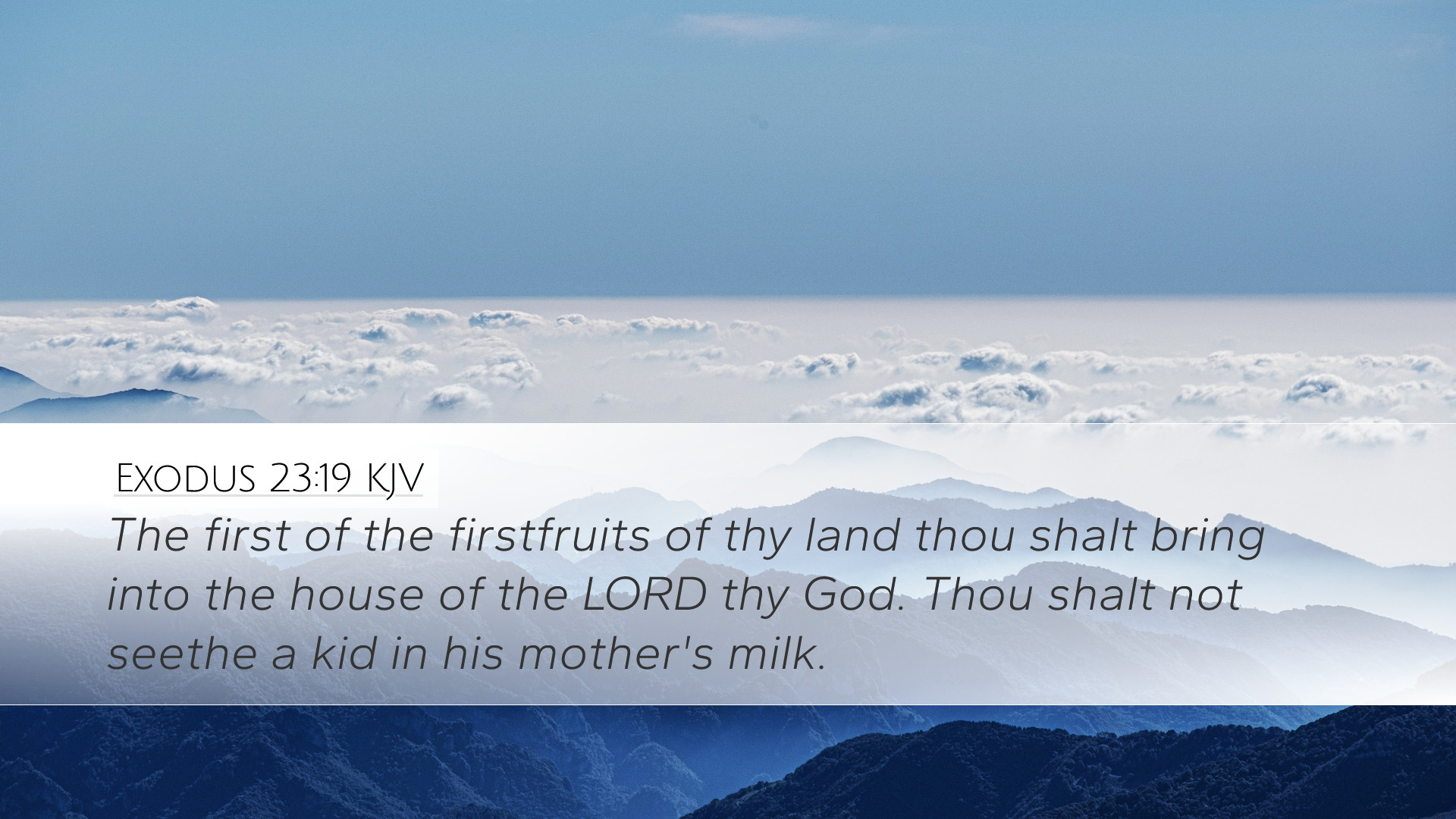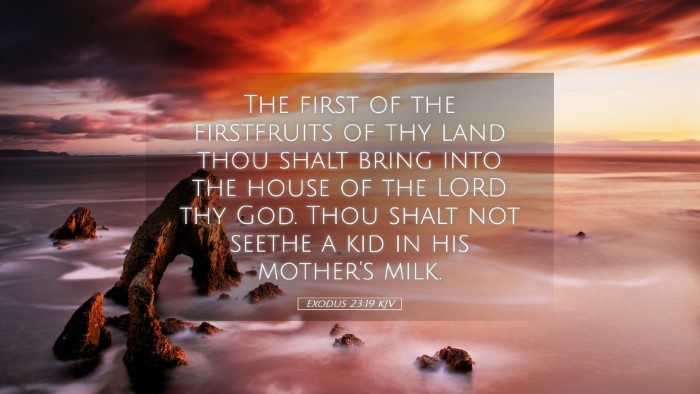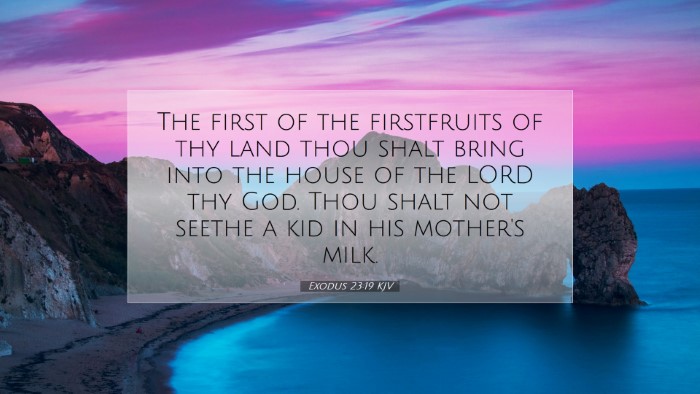Commentary on Exodus 23:19
Verse: "The first of the firstfruits of thy land thou shalt bring into the house of the Lord thy God. Thou shalt not seethe a kid in his mother's milk."
Introduction
Exodus 23:19 provides profound theological insights and practical directives that are essential for understanding the nature of worship and the holiness of God. This verse is nestled within a broader discussion of God's laws and ordinances for the nation of Israel, emphasizing both an agricultural and a spiritual perspective. In this commentary, we will explore the multifaceted implications of this verse drawing from public domain commentaries, notably those by Matthew Henry, Albert Barnes, and Adam Clarke.
Understanding the Firstfruits
Matthew Henry's Perspective: Henry emphasizes the importance of the offering of firstfruits as an acknowledgment of God's sovereignty over the land and its produce. By bringing the first of the firstfruits, the Israelites were recognizing God's provision and expressing gratitude for His blessings. This act was symbolic of dedication and would set the tone for the rest of their harvest—everything that followed belonged to God as well.
Albert Barnes' Commentary: Barnes highlights that the "firstfruits" indicates the best and the most valuable portion of the harvest. By bringing these offerings to God’s house, one demonstrates a prioritization of God in their life and a commitment to serve Him. The act of offering was not merely a ritual but an act of worship that signifies devotion and the trust that God would continue to provide for His people.
The Concept of Acknowledgment
This act of bringing the firstfruits is steeped in the concept of acknowledgment—a recognition of God as the source of all blessings. When pastors and theologians reflect on this passage, it challenges them to consider how they recognize God's provision in their church communities. Are offerings and worship settings reflective of gratitude for God's material and spiritual provision?
The House of the Lord
Adam Clarke's Insights: Clarke focuses on the phrase "the house of the Lord thy God." For Clarke, this underscores not only a physical location but also a spiritual designation—the Temple as the dwelling place of God among His people. Offering the firstfruits in such a holy space highlights the reverence that should accompany our worship. It serves as an invitation for church leaders and scholars to examine how modern practices in worship also reflect an understanding of holiness and respect for God's presence.
The Prohibition Against Boiling a Kid in its Mother's Milk
In the latter part of the verse, the instruction not to "seethe a kid in his mother's milk" introduces a fascinating debate among commentators. This prohibition is often seen as a matter of compassion, symbolizing a deep respect for life and the inherent ties between a mother and her offspring, suggesting that God cares deeply about the ethics of treatment towards animals—providing a broader moral framework.
Matthew Henry's Commentary: Henry suggests this prohibition also carries a deeper allegorical meaning, as it teaches us to avoid acts that could lead to spiritual dilution or compromise. This principle encourages congregations to evaluate their values assimilated from cultural practices that may deviate from Biblical teachings.
Albert Barnes' View: Barnes notes that this commandment may serve to prevent pagan practices that surrounded Israel. Some cultures of the time engaged in such practices in their rituals, which were often associated with fertility rites. By prohibiting this, God distinguished His people from the surrounding nations, emphasizing the need for holiness in every act, even in matters of diet.
Theological Implications
This verse encapsulates key principles that are essential for sustaining a life of faith. The act of offering firstfruits parallels the New Covenant practice of presenting one's body as a living sacrifice (Romans 12:1). It challenges believers to consider what it means to dedicate the 'firsts' of their lives—time, talent, and treasure—to God. How can congregations implement this mindset in a modern context, ensuring that every aspect of church life honors God and instills communal responsibility towards spiritual growth and ethical treatment of creation?
Concluding Thoughts
Exodus 23:19 serves as a foundational verse that speaks to the heart of worship and community ethics in the life of the believer. The insights garnered from Henry, Barnes, and Clarke present a cohesive understanding that transcends the ancient agricultural context and reaches towards a contemporary application that is as relevant today as it was thousands of years ago. This verse beckons pastors, theologians, students, and laypersons alike to embody a life marked by gratitude, holiness, and ethical responsibility.


